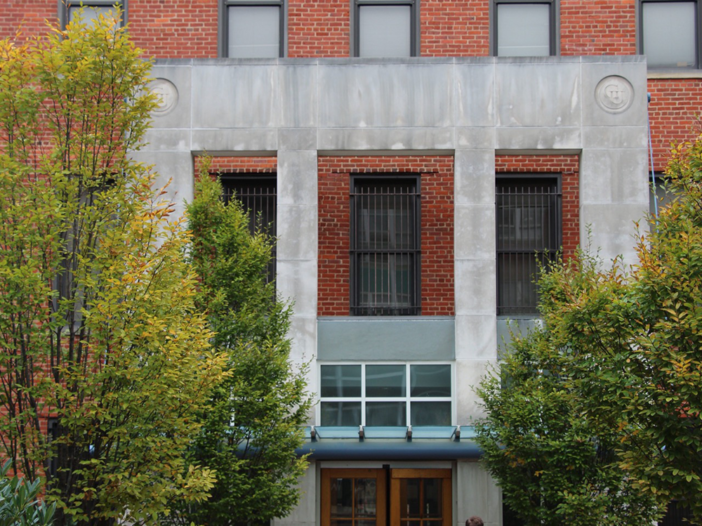Two Georgetown dorms experienced fire alarm malfunctions during the nights of Sept. 27 and 28.
Georgetown officials were unable to deactivate fire alarms and smoke detectors in LXR and Copley Halls after they went off, causing them to ring throughout the night.
According to residents, the fire alarm first went off in LXR at 12 a.m. on Sept. 28 and did not stop until 5:10 a.m. Fire alarms went off in Copley later that day at around 8:20 p.m. and continued ringing for two hours, although students were allowed to reenter the building at 8:35 p.m.
Students complained of little communication and long wait times in addition to the disruption to their sleep and work.
Julio Wang (SFS ’25), who lives in LXR but was in Lauinger Library when the alarm initially went off, said that his RA notified them at 1 a.m. that Washington, D.C. fire department estimated it could arrive at 4 a.m. to turn the alarms off.
“I stayed in Lau until 4 AM, during which I was unable to be productive because I was very sleepy. I was unable to go to my 11 AM lecture in the morning because I was too tired, and I woke up at 3 PM that day,” Wang wrote to The Hoya.
“My roommate also skipped his 8:30 AM biology lecture because he was sleeping in the music room in the basement that day to escape the noise,” Wang added.
Wang listed other facilities issues with LXR, adding that he has filed complaints about a lack of hot water, broken furniture and issues in bathrooms since moving in in August.
“The Georgetown facilities department in my opinion does not do anything,” Wang wrote. “They just put trash bags on toilets and sinks for weeks without fixing the problems.”
“They may be good at replacing or reconstructing entire buildings (installing new washing machines or new windows), but when it comes to broken things they need to fix, they are never helpful,” Wang added.
Samuel Bailey (SFS ’26) said he was in LXR when the fire alarms went off. According to Bailey, he and other students stood outside of the building on the street and sidewalk until GUPD allowed them back into the building at 1:30 a.m, an hour and a half after the fire alarms initially went off.
“It took GUPD close to 15 minutes to get there after the alarm started. They didn’t give us any updates while all of this was happening, so we had no idea how long it would take before we could go back inside,” Bailey wrote to The Hoya.
“It was frustrating to have to stay outside for so long, especially because I had a busy day the next day and still had work to finish, but I left my computer inside since I thought it would be quick,” Bailey added.

Students on the social media app Flok said alarms were still going off in individual rooms even after they were let back into the building. Bailey said that his room’s alarm stopped ringing when he returned but that others continued to ring in much of the building.
According to Bailey, the LXR fire alarms continued to go off until the fire department was finally able to turn them off around 5 a.m. Sept. 28.
In Copley, meanwhile, residents said that a dryer caught fire in the basement Sept. 28 shortly before 8 p.m., but the fire alarms didn’t start until approximately 8:20 p.m.
Nabiha Islam (SFS ’27) said another student first alerted her about the fire because the alarms had not gone off yet, although she smelled smoke while leaving for an event around 8 p.m.
“Honestly the entire time I thought the alarm malfunctioned because it would make sense since the building is so old but when I headed out the front doors I smelled smoke and then assumed that someone burnt something while cooking,” Islam wrote.
After the alarms began, GUPD evacuated residents from Copley and called the fire department. Once they completed their investigation, most of the fire department left but alarms continued.
Copley residents Jiyon Chatterjee (CAS ’27) and Aashna Nadarajah (SFS ’27) said they moved to Lauinger Library to avoid the noise.
“Nobody could go back to their rooms and there was just a lot of general confusion about what was going on,” Nadarajah wrote to The Hoya.
Islam said that they were allowed to return by 8:30, but after attending an event, she returned to Copley at 10 p.m. and still heard the alarms ringing, though it turned off shortly after.
“At that point, I was super tired and I was planning how I was supposed to go to sleep with the alarm still going,” Islam wrote to The Hoya. “Having the alarm stay on for so long even after the area was deemed safe is crazy.”
Affected residents said their biggest concern was the lack of communication from the university during and after the issues.
“While I understand that everything malfunctions, I think the biggest issue was how long it took GUPD to get there in the first place,” Bailey wrote. “Especially with everything so close together on campus it shouldn’t take that long for them to arrive. They should be able to respond much faster.”
Wang said that he found the lack of follow-up or assurance from the university that the situation would not happen again to be concerning.
“The fact that Georgetown never sent us an email explaining the situation is just utterly ridiculous.”




















